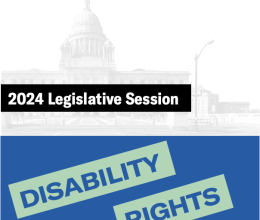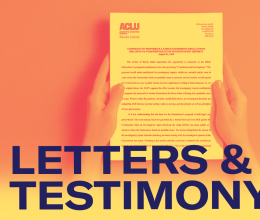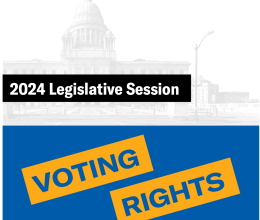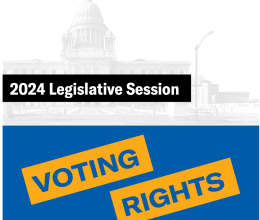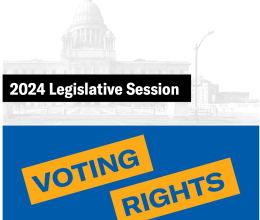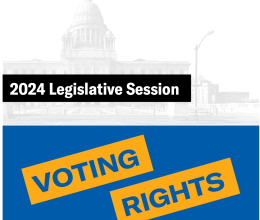In an important victory for voting rights and public health, the U.S. Court of Appeals for the First Circuit has unanimously upheld implementation of a consent agreement suspending Rhode Island’s witness/notary requirements for voting by mail in the September and November elections. “Taking an unusual and in fact unnecessary chance with your life is a heavy burden to bear simply to vote,” the court wrote in its 12-page decision refusing to issue a stay of the agreement pending any further appeals.
The decision came in a lawsuit filed two weeks ago by attorneys for the American Civil Liberties Union, the ACLU of Rhode Island, the Campaign Legal Center, and the law firm Fried Frank. The suit sought to block provisions of a state law that require Rhode Islanders who vote by mail to have two witnesses or a notary sign their ballot envelope, even in the midst of a highly contagious and deadly pandemic. These requirements necessitate face-to-face and hand-to-hand interaction between voters and others who pose a potentially fatal risk to the voters’ health.
The case was filed on behalf of two voting rights advocacy groups — Common Cause Rhode Island and the League of Women Voters of Rhode Island — and three voters with significant medical vulnerabilities that place them or members of their household at a heightened risk of severe illness or death if they contract COVID-19.
Last week, the plaintiffs and the defendants in the case – the Secretary of State and the Board of Elections – submitted a consent agreement to suspend the witness/notary requirement, which was approved by U.S. District Judge Mary McElroy. The Republican Party of Rhode Island and the Republican National Committee then appealed that decision to the Court of Appeals in Boston, asking that enforcement of the consent agreement be stayed, leading to tonight’s decision. The three-judge panel unanimously denied the request, calling the Party’s fear of voter fraud “dubious as a matter of fact and reality,” and noting the position of elections officials in support of suspending the requirement.
Michael Keats, an ACLU cooperating attorney from the law firm of Fried Frank who argued the case, said tonight: “We are gratified the Court of Appeals agreed that Rhode Island voters should not be forced to choose between their health and their constitutional right to vote. The decision demonstrates once again that the Courts and the Constitution remain the only bulwarks against political inaction and partisan calculation.”
